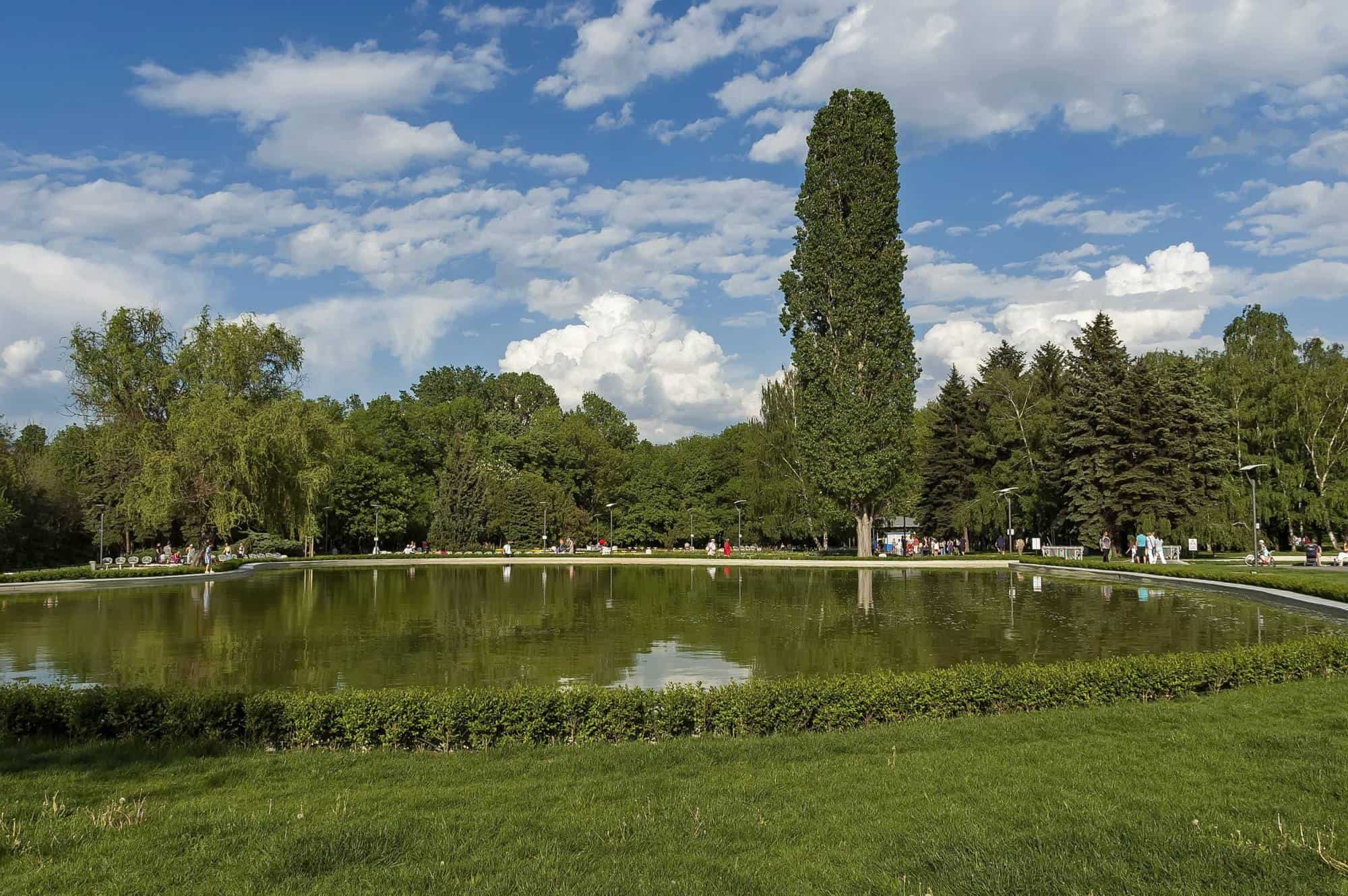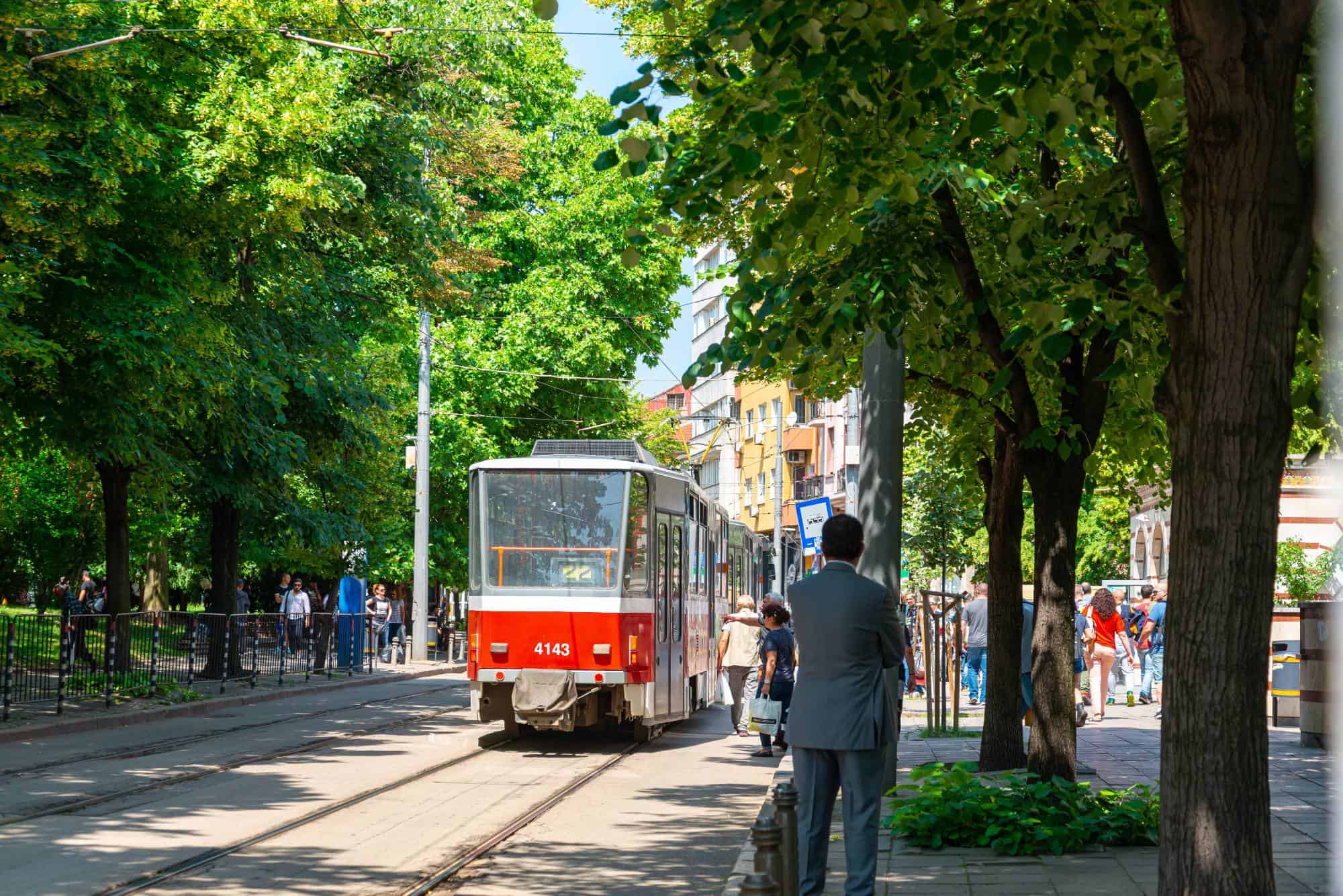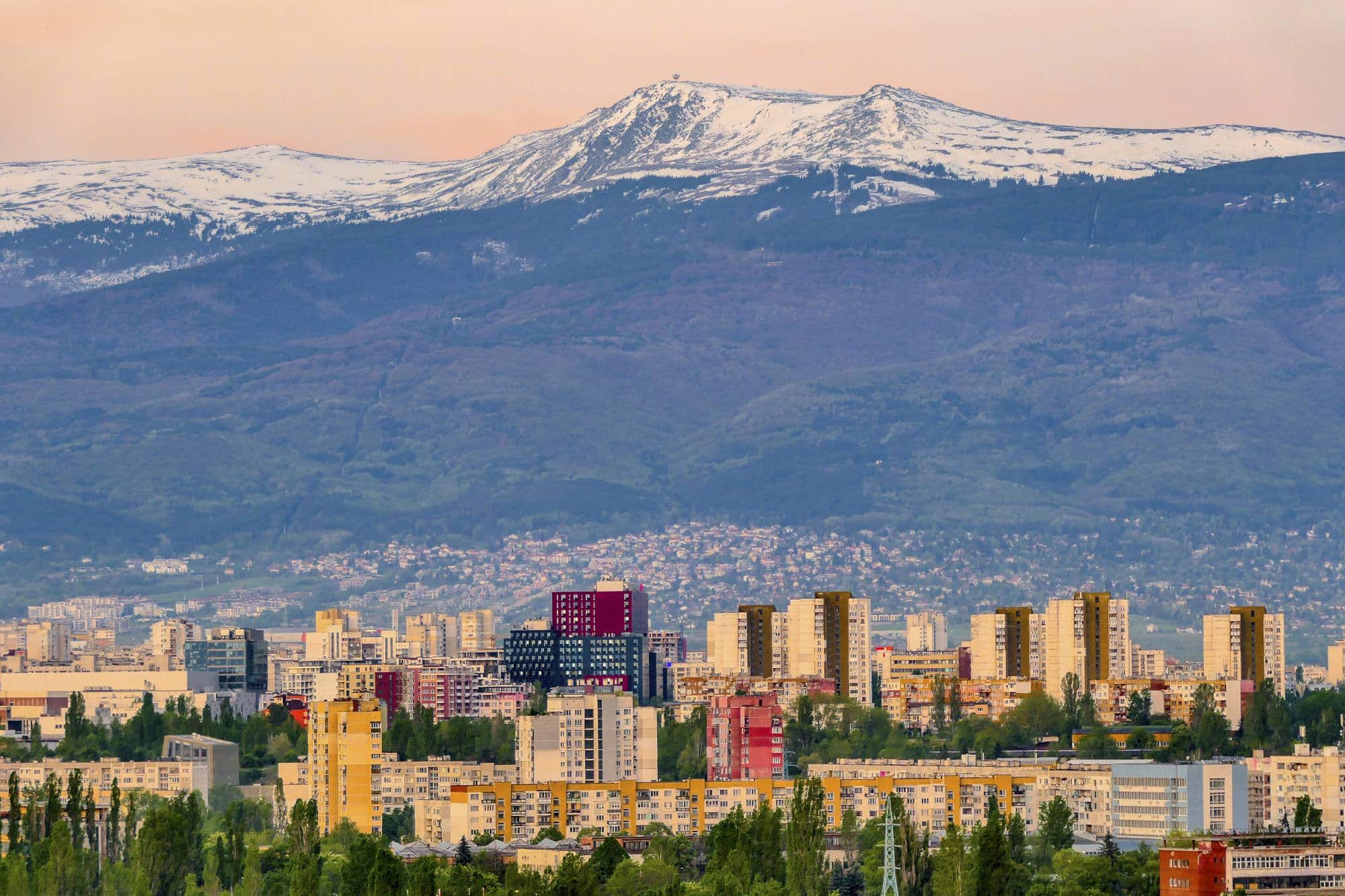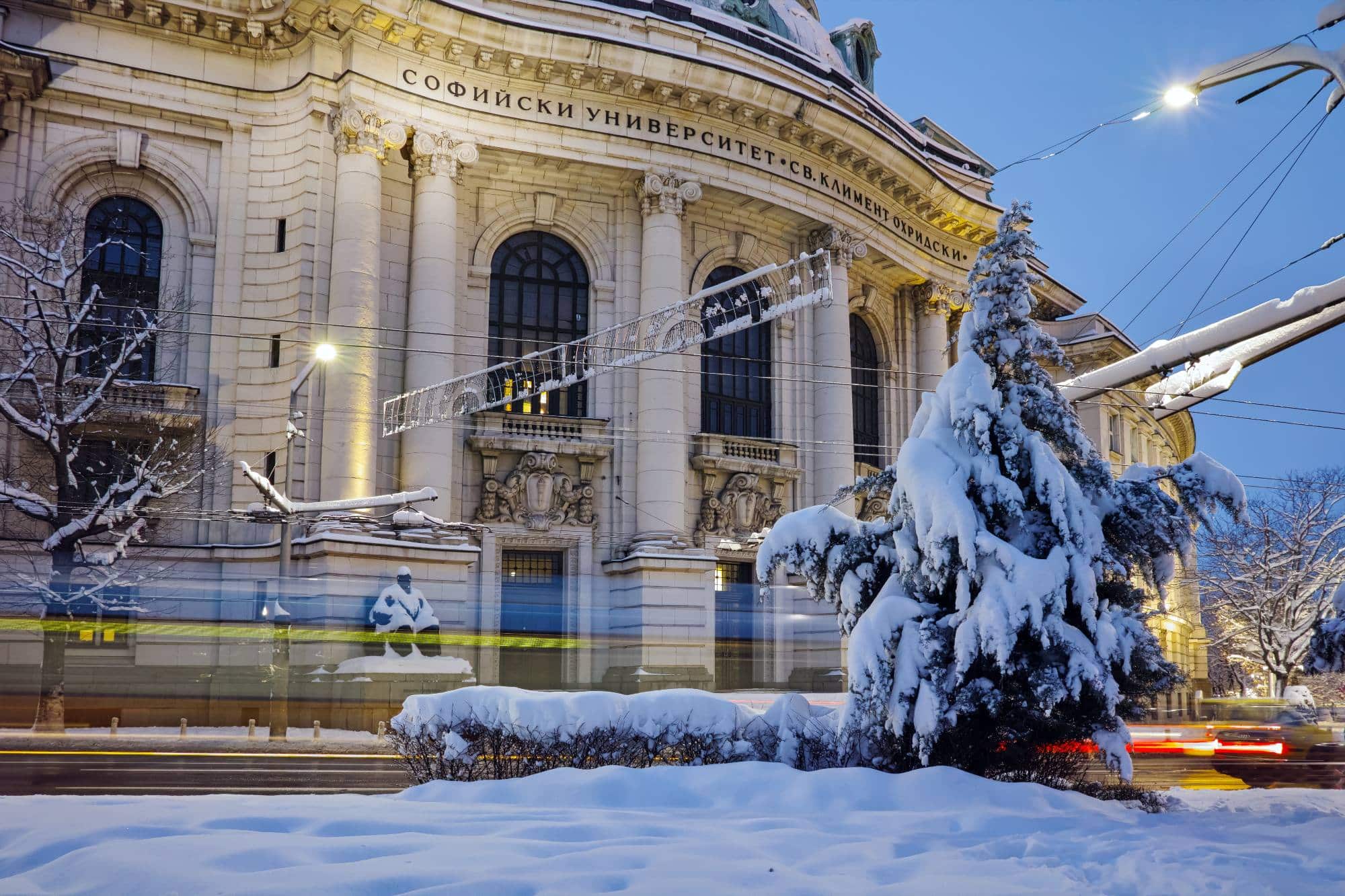Sofia is one of the oldest capitals in Europe and has a lot to offer. With a rich history and diverse cultural background, it’s the country’s largest and most attractive city from a range of perspectives.
In this article, we’ll share all you need to know about living in Sofia. We’ll provide an overview of the city in terms of living standards, look at the cost of living, how much money you can expect to make working there, what the educational system looks like, and more.
Secure Peace of Mind with Best-Value International Health Coverage
International Citizens Insurance provide free, no-obligation quotes from the leading international health insurance providers with plans tailored to meet your needs. Trusted by thousands of expats worldwide.
Is Sofia a nice place to live?
Sofia is a great place to live. Apart from being a budget-friendly location both for traveling and living, it provides an excellent opportunity to experience a new culture.
You will also find that Sofia is home to a large number of foreigners who either work or study in the city. It's reassuring to know that so many expats find Sofia a nice place to live.
Its location is superb if you are a nature lover. The city is nestled at the foot of Vitosha Mountain, which offers beautiful views and mesmerizing nature.
Living in Sofia, you get to enjoy all four seasons.
Despite the fact that it’s Bulgaria’s biggest city, Sofia has a relatively relaxed pace of life, and residents enjoy a nice balance between work and pleasure.
The city has a well-developed infrastructure, many sports and recreational facilities, delicious food, and diverse dining options.
Is it expensive to live in Sofia?
Compared to other European capitals, Sofia is a relatively cheap location to move to, so it has become an extremely popular choice for expatriates looking for an affordable place to live in.

To get a realistic idea, we’ll have to dive into more detail. When establishing how expensive a city is to live in, we have to think about things like rent, property prices, grocery shopping, nights out, transport, and others.
So let’s hop on a journey across Sofia to see what the price of living looks like.
Rent in Sofia
As with any other part of the world, the rent prices vary depending on the type of area you select. For example, if you’re looking to rent an apartment with a size of 80 m2 or 861 sqft in a luxurious part of the city, you can expect to pay somewhere around €1,000 and over.
However, if you choose to live in a rather normal area, the monthly rent for the same type of apartment would be around €700.
If you’re looking for a nice studio to rent in a central and expensive area, you can expect to pay around €500 for a 45 m2 or 430 sqft. In a normal area, the same property would be around €350.
Property prices
If you’re looking to invest in a property in Sofia, let’s just say that the capital has a relatively affordable property market when compared to other European cities like London, Paris, or Vienna.
Depending on the area you choose to invest in, property prices average at €1,545 per square meter.
Grocery shopping
Regarding grocery shopping, the city is not among Europe’s most expensive ones. For example, 12 large eggs are around €4, and 500 g of cheese is €5-€6.
A bottle of good red wine from a local store is €7-€8.
On average, if you’re living alone, your grocery shopping could be somewhere around €300 per month.
Nights out
Nights out are also very affordable in Sofia, especially in certain parts of the city, like Studentski Grad, which is inhabited mainly by students. In fact, Studentski Grad translates to “student town”.
On the other hand, if you have a cocktail in a downtown club, it will cost around €7. A beer in a neighborhood pub will cost you around €2.
Transport
Public transport in Sofia is excellent. An underground service, trams, and regular buses connect most of the city.

A monthly ticket for public transport costs €25.
If you’re looking to hop on a taxi trip through the city, based on how far you’re traveling, you are likely to pay somewhere around €7.
Utility bills
Monthly utility bills, including heating, electricity, gas, water, and others for a person living in a property of 50 m2 or 538 sqft, are around €72 in Sofia.
Internet
The Internet in Sofia won’t cost you much. For example, Internet of 8 Mbps will cost you €9 per month. Also, it’s worth noting that most cafes, restaurants, and public places provide WiFi access.
When compared to other European cities, living in Sofia is affordable and easy-going on a budget.
How much money do you need to live comfortably in Sofia?
So how much money will you need to live in comfort and convenience in Sofia and get the most out of the city? As an international person, it’s natural that you’ll want to visit more places and explore all the city offers. Considering this, the money you’ll need may vary slightly from a local’s monthly budget.
The average cost of living in Sofia for a family of four, for example, is around €2,400, excluding rent.
On the other hand, a single person can feel comfortable with around €1,000 per month without rent.
Of course, these costs are subject to change depending on your lifestyle and preferences. However, they do provide the necessary comfort for most people.
What is a good salary in Sofia?
Sofia's average monthly net salary is around €2,700 per month. Professionals experienced in certain industries could earn higher salaries.
However, if you specialize in the IT sector, as an expat you could be making anywhere between €4,000 and €6,000 per month. This can be higher if you have more experience.
Sofia offers the highest salaries in Bulgaria, regardless of the chosen industry. This is why it attracts not only foreign professionals but a lot of Bulgarians from other regions of the country.
Is Sofia safe to live in?
Another benefit of living in Sofia is that it’s a relatively safe place to stay in, especially in the central parts. Violent crime is not common.
There are minor crimes, such as theft and pick-pocketing, that are present in some areas of the city, but overall, Sofia is considered a low-risk capital.
The only areas where risk is considered medium are scams and pick-pocketing.

There are a few crime hotspots in Sofia that it’s worth avoiding just to make sure you’re on the safe side. These include:
- Sveta Nedelya Square
- The underpass to Central Station
- Lion’s Bridge
- Lyulin
- Fakulteta (The Faculty)
Some of the more risky zones in the city are known for groups of children pickpocketing, bag slashers who could run away with your belongings, and underground gangs.
The pros and cons of living in Sofia
There are always two sides to a coin, and Sofia is no exception. You can have the time of your life in the capital, but there are also some drawbacks that must be considered.
Let’s look at the pros and cons of living in Sofia in more detail.
The pros of living in Sofia
1. Cultural life
One of Sofia’s most significant advantages is its diverse and rich cultural life. You can hardly ever get bored, considering the number of available activities and entertainment options that you can choose from.
There are many museums, art galleries, luxurious clubs, cafes, restaurants, and concert halls that can keep you entertained and occupied.
There are plenty of adventures to hop on in Sofia. If you’re fond of art, music, and theatre, you can visit Sofia City Art Gallery, Sofia’s Opera and Ballet events, or attend a concert on Sofia’s music stage.
2. Affordable living
Sofia is much less expensive to live in than other European cities like Berlin, Paris, Vienna, or Barcelona. If you’re a working professional, you can easily find a well-paid job in the capital and enjoy comfortable and stress-free living.
3. Amazing travel opportunities
Sofia is located in the heart of the Vitosha mountains, but not only. It’s extremely easy to book a journey to nearby cities and small villages with many stories to tell.
Bulgaria is extremely rich in history; there are still smaller towns that remember and cherish old customs and traditions. You can visit nearby mountains for a walk in nature, or take a 5-hour bus trip to the seaside and visit Varna and the Black Sea.
You can use Sofia’s airport for all kinds of international travel.
4. Sound educational system
Bulgaria is well-known for its excellent educational system, where students gain in-depth knowledge on various topics.
Children start learning fundamental subjects like physics, biology, and chemistry from an early age. You can choose from public and private schools and provide the best learning environment for your children.
There are also excellent opportunities for higher education and university studies in Sofia. For example, Sofia University St. Kliment Ohridski is one of the popular choices for both local and international students.

You can also take advantage of the Technical University of Sofia, The University of National and World Economy, the National Sports Academy Vasil Levski, and more.
5. Diverse job opportunities
Bulgaria is a cheap country to do business. Because of this, many international companies choose to establish their headquarters or open offices in Bulgaria for cost reduction. This provides locals and foreigners with specialized skills and experience with new job opportunities and career paths for growth.
The cons of living in Sofia
However, not everything is pink and shiny. There are also a few vivid setbacks in Sofia.
1. Prejudice against the Roma community
Overall, Bulgarians are tolerant people. However, negative attitude towards the minority Roma population or the gypsies living in the city is quite common. In most cases, there is no communication between the Bulgarians and the gypsies unless it is over a dispute or a verbal or physical fight.
2. Corruption
Bulgaria is among the countries with high corruption compared to other countries on the global map.
As Sofia is the capital, this is where most politicians are based and operate. You can sometimes feel a clear sign of corruption when certain people are allowed access to certain information, amenities, or power without necessarily having the legal right to such access.
There are also a lot of conflicts of interest, dual roles, and financial deficiencies in the country.
3. Pollution
Being the most significant Bulgarian city, Sofia is also known for its polluted air and certain areas that are quite messy. In fact, Sofia is considered Europe’s most polluted capital and has high concentrations of fine particulate matter.
Things get even worse when we look at the city’s geographic location. It’s positioned in a valley where wind rarely enters, leading to pollution stuck over the city for long periods of time.
4. Poor public administration
In general, Bulgaria is slowly transitioning into the digital world, and public administration is still a bit slow and outdated. If you have to take care of documents for your car or property-related matters, you could wait for hours and possibly not receive very professional customer service.
The best areas to live in Sofia
Sofia is a big city, and it’s only natural that you start asking yourself where it would be best to find a place to stay. The right decision would entirely depend on what type of experience you’re looking to have.
We’ll go over some of the top places to live in Sofia and suggest the type of people they’re most suitable for.
Pancharevo
Pancharevo is a beautiful area in Sofia. It is not a central location but offers many advantages, mostly access to nature. The nearby lake, for example, is a favorite destination for anglers and family days out.

In addition, Pancharevo is home to one of the most prestigious and highly-rated schools in Sofia.
It will take you about half an hour to travel by car to the city center, so it’s not a destination that is too far away from the key Sofia points.
Pancharevo is a perfect choice for families with children and retirees looking for a quiet and calming place to live in.
Bistritsa & Boyana
Bistritsa and Boyana are two separate parts of Sofia that are extraordinary and beautiful. They’re located in the foothills of Vitosha Mountain and offer outstanding houses with stunning architecture and mesmerizing city views.
Considering that they’re located in Sofia’s outskirts, they’re often preferred by experienced working professionals with financial stability and families with children.
These two city zones provide more air and freshness as the areas are not overcrowded. Keep in mind that Sofia receives a lot of snow in the winter, and traveling to Boyana and Bistritsa may require a 4x4 vehicle.
Student’s Town
If you’re a student or a young single, you’ll definitely enjoy the diversity that Student’s Town has to offer.
The area is popular for some of the cheapest bars, restaurants, and nightclubs that you’ll find in Sofia.
It’s an easy zone to live in as it’s like a small town in a city with everything necessary right by your side. You can enjoy easy access to banks, local stores, bus stations, fast food restaurants, and more.
Keep in mind that the area is quite loud and busy, and you can’t find a lot of working adults living there.
Areas to avoid
Sofia has a range of amazing neighborhoods that attract locals and expats but also has a few city zones that are best to avoid.
Musagenitsa
Musagenitsa is not usually a top choice for tourists and expats, and there’s a reason why. It’s host to old communist buildings, yet the property prices in the region are very high.
There’s a large bazaar that you can visit there, but the environment is extremely polluted, dirty, and unpleasant. The space around the tube station is noisy and busy. Finding a parking space is a nightmare, too.
Fakulteta
Fakulteta, or “The Faculty”, is a gang area in Sofia that is eminent for its high levels of crime and aggression. It’s considered one of the largest Romani quarters in Bulgaria, where 50% of the population is Romani. There are often tensions in this residential area, and even locals try to avoid it at all costs.
Schools and education in Sofia
The education system in Bulgaria offers sound knowledge in a wide range of subjects for students from an early age. There are more than 100 state schools, 12 international schools, and 16 universities in Sofia.
For expats, the most common choice of education is international schools.

There is a vivid segmentation between state schools in Sofia. Depending on the area where the school is based and the chosen teachers, the school can either be exceptionally good or unacceptably bad.
Language schools are considered to be very successful. Still, even then, there’s no guarantee that the child will feel comfortable in a school where locals speak mostly Bulgarian and where teachers could have relatively outdated methods of teaching.
Sofia is also home to several high-quality and top-rated international schools, like the Anglo-American School of Sofia.
The annual fees for studying in an international school could range between €9,000 and €21,000, depending on the student's age. Although it’s a rather expensive road to take, it is worth it in every aspect.
International schools in Sofia offer a multicultural experience for students and access to modern, sophisticated facilities, teaching methods, and numerous extracurricular activities. Such schools are designed with precision and to the highest standards, offering children a tailored and personalized teaching approach.
There is a range of local private schools that also offer exceptional quality. You can expect to pay anything between 7,000 lv and 20,000 lv. It’s important to note that there is often a difference between the fees for local students and for international students.
Final thoughts on living in Sofia
Sofia is a great choice if you are planning on living in Bulgaria. The city could be a true adventure for singles, families, and retirees alike. It's extremely rich in opportunities and activities, and just like any other city, it has its good and bad points.
Hopefully, this guide will help you turn your time in Sofia into a positive one and will help you make new memories that will stay with you for life.
You might find useful:
- Living In Bulgaria – a detailed guide to moving to Bulgaria: residency, paperwork, bank accounts, schools, best areas, etc.
- The Pros & Cons Of Expat Life In Bulgaria.
- Best Places To Live In Bulgaria.
Helpful external links:
Secure Peace of Mind with Best-Value International Health Coverage
International Citizens Insurance provide free, no-obligation quotes from the leading international health insurance providers with plans tailored to meet your needs. Trusted by thousands of expats worldwide.




